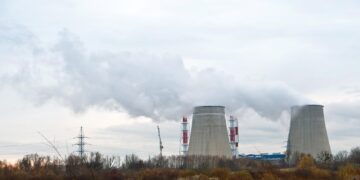Understanding Global Warming: Essentials for Beginners
As concerns about climate change continue to rise, understanding the basics of global warming is crucial for everyone. This comprehensive guide to global warming for beginners explains the fundamental aspects of this significant environmental challenge. We will explore what global warming is, its causes, effects, and some common questions and misconceptions around this topic.
What is Global Warming?
Global warming refers to the long-term heating of Earth’s climate system observed since the pre-industrial period (between 1850 and 1900) due to human activities, primarily fossil fuel burning, which increases heat-trapping greenhouse gas levels in Earth’s atmosphere. This is a primary aspect of the broader phenomena known as climate change, which besides the rising global temperatures, also includes changing precipitation patterns, rising sea levels, and extreme weather events.
Causes of Global Warming
- Greenhouse Gases: The primary driver of global warming is the increase in greenhouse gases, like carbon dioxide (CO2), methane (CH4), and nitrous oxide (N2O), which trap heat in the atmosphere.
- Deforestation: The removal of forests, which absorb CO2, exacerbates the accumulation of greenhouse gases.
- Industrial Activity: Extensive industrial processes contribute significantly to the release of carbon dioxide and other greenhouse gases.
- Agriculture: Agricultural activities, including livestock production, release large quantities of methane and nitrous oxide.
- Energy Production: Use of fossil fuels for electricity and heat is the largest single source of global greenhouse gas emissions.
Effects of Global Warming
- Climate Patterns: Changes in climate patterns can lead to severe weather conditions, such as longer-lasting and more intense heat waves, hurricanes, and droughts.
- Rising Sea Levels: The melting of polar ice caps and glaciers coupled with warming seas lead to rising sea levels, which can cause coastal flooding.
- Impact on Ecosystems: Global warming can affect ecosystems and species unable to adapt to temperature changes, leading to biodiversity losses.
- Human Health: The effects of global warming also extend to human health, increasing the prevalence of diseases, heat-related mortalities, and food and water scarcities.
Addressing Common Questions and Misconceptions
Is Global Warming the Same as Climate Change?
While often used interchangeably, global warming and climate change refer to similar but distinct phenomena. Global warming is specifically the increase in Earth’s average surface temperature due to rising levels of greenhouse gases. Climate change includes global warming, but it also encompasses a wider range of changes, such as sea level rise, ice mass loss, and disruptions in plant and wildlife populations.
Can Global Warming Be Stopped?
While we cannot completely stop global warming immediately, we can mitigate its effects through concerted global action. This includes reducing greenhouse gas emissions, transitioning to renewable energy sources, enhancing energy efficiency, and protecting and restoring forests.
How Reliable Are Climate Models?
Climate models are sophisticated tools that scientists use to predict future changes in the climate system. Although no model is perfect, modern climate models are highly advanced and have been validated across multiple scenarios. They are considered reliable tools for guiding decision-making in climate policy.
What Can You Do to Help Combat Global Warming?
- Reduce Energy Consumption: Simple actions like turning off lights and electronics when not in use can reduce your carbon footprint.
- Use Public Transport: Reducing the number of vehicles on the road decreases the emissions of greenhouse gases.
- Educate Others: Spreading awareness about the impacts of global warming and ways to mitigate its effects can lead to collective action.
- Support Sustainable Practices: Purchasing products from companies committed to environmentally sustainable practices helps reduce global warming.
- Get Involved: Participating in tree planting activities and supporting environmental policies can make a significant difference.
Conclusion
Understanding and addressing global warming is a responsibility for each of us. By gaining a clear understanding of this issue and undertaking actionable steps to help mitigate its impact, we can contribute to a healthier planet for future generations. It begins with awareness and progresses through informed and sustained action.









